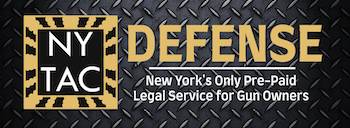Representation.
Recording a Motion Picture or Live Theater
We have all seen the FBI warning at the beginning of a movie or some of us have seen the ad spots telling us that it was a federal crime to illegally record or reproduce a movie. This warning, however, is to warn of the federal charges and what most people don’t realize is that the state can bring charges for this type of action as well. Unlawful operation of a recording device in a motion picture or live theatre is chargeable in three degrees, beginning as a violation and working up to a felony charge. If you have been charged with recording a motion picture or live theater, call now speak with one of experienced New York criminal attorneys.
First, it is important to know what each item named in the statutes means. “Motion picture theatre” is any auditorium, screening room, theater or other venue that is being used to show a motion picture (movie or film) at the time the offense occurred. “Live theater” includes recital halls, auditoriums or concert halls where a presentation is taking place consisting of a musical, dance, drama or stage rendition by a live person or persons. Performances that are done as part of a school, college or camp program are not included in this type of statute.
When a person knowingly operates a recording device (e.g. photographic or video camera, or any device that is meant to record the sound or picture of a motion picture) without written permission or authority in such a place as described above, the initial charge is a violation. Violations are not as serious as other charges but repeat violations can cause a serious problem over time.
If a person commits the violation offense in a circumstance where they are recording 15 minutes or more of a motion picture or live theater performance or are taking the recording for commercial purposes or financial profit, the charge is now that of a class A misdemeanor. As stated above, repeat violations can cause problems, such that another conviction within five years will be the higher misdemeanor charge, as well as if they have been previously convicted of the unlawful operation of a recording device in a motion picture or live theater in the first degree in the same time frame.
For the highest degree of this offense to apply, a person would have committed the offense in the second degree and have been convicted previously within the past 10 years. This offense is not an E felony, meaning significant time behind bars can be sentenced by the court for the conviction of this offense.
Even though this offense may only start as a violation, the charges can become incredibly serious if ignored or not handled properly. Make sure that you have an attorney you can trust by your side, one who knows the criminal courts well and use that knowledge to work with the court and obtain the best possible result regarding the charges. Call now for a free consultation with our team of experienced New York criminal attorneys.

















